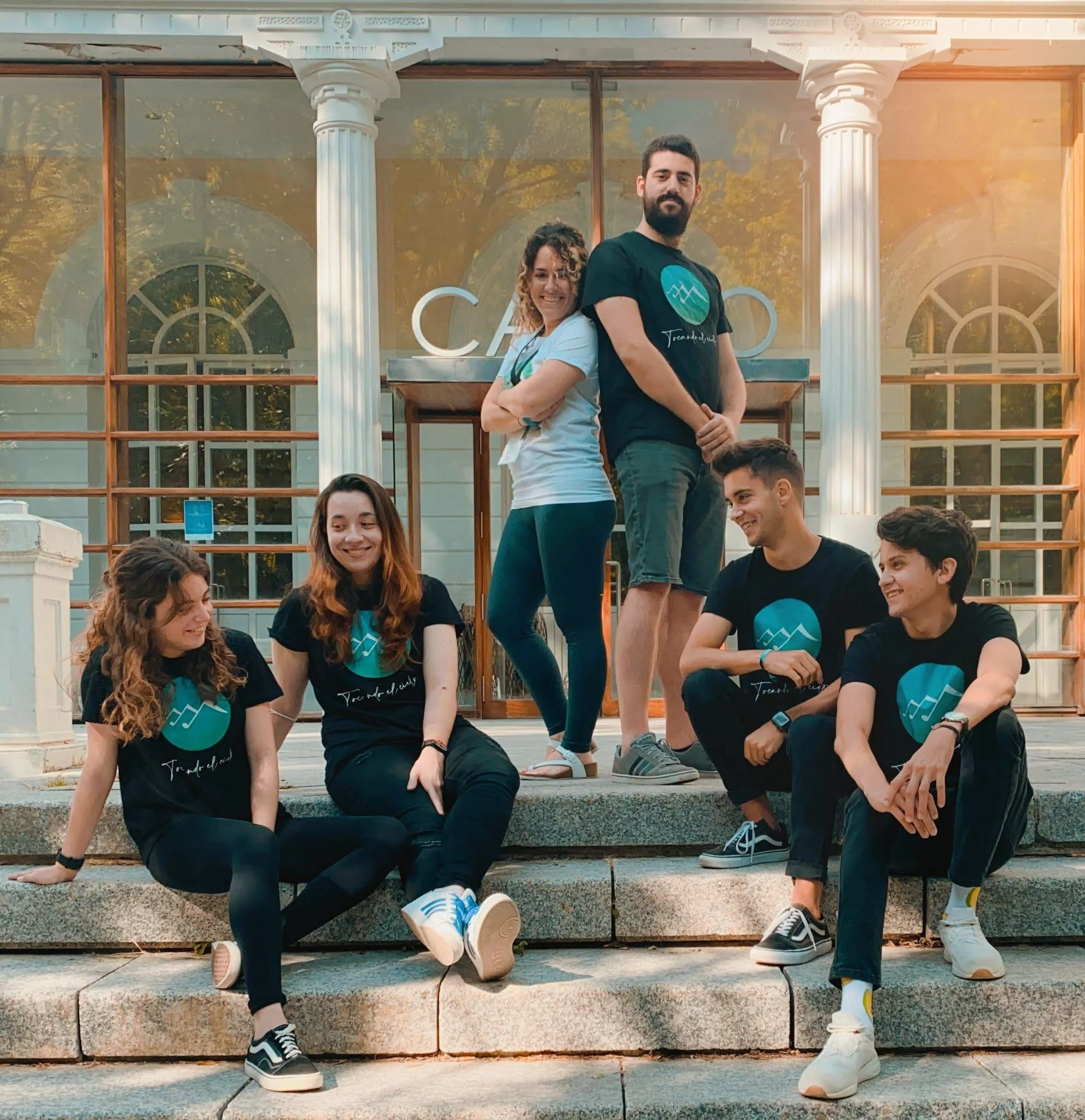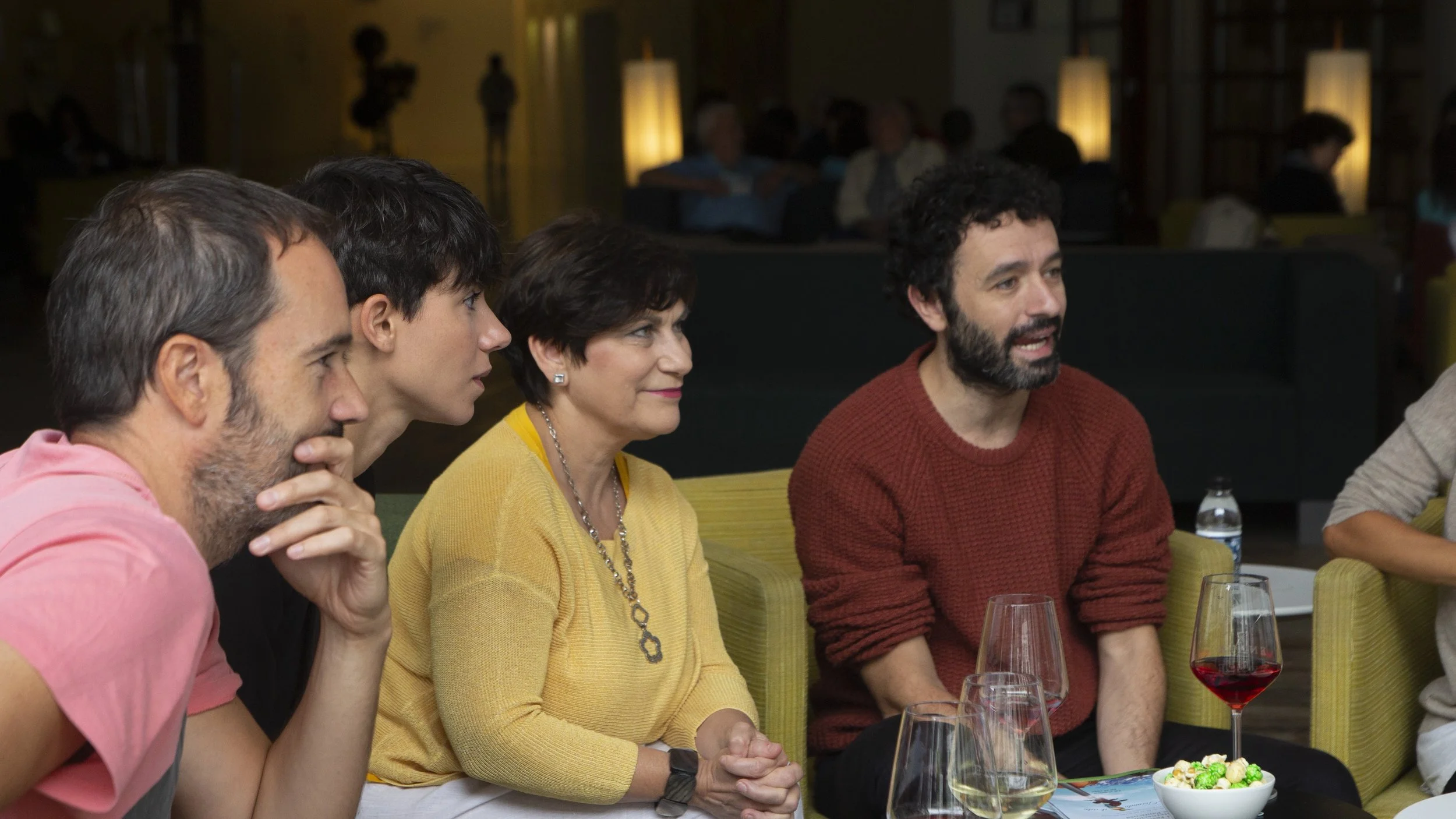International festival of panticosa
Every summer between 2019 and 2021, I joined the team behind the International Festival of Panticosa : a classical music event held in the heart of the Pyrenees. I started as a volunteer production assistant, and little by little, ended up taking on a variety of roles that went far beyond what I imagined. Each edition brought different lessons and challenges, and each one shaped me in its own way.
2019 ✤
2019 ✤
That summer was my first experience on a real production team. I joined the International Festival of Panticosa full of energy, nerves and the need to prove myself. What I found was a very small festival and poorly organised, with minimal resources but that didn’t stop me from giving everything I had.
I was supposed to be a production assistant, but I ended up doing a bit of everything: carrying chairs for concerts, helping with the lights, shooting photos for the official archive, running backstage to support the crew, and even assisting in interviews. It was exhausting, chaotic and completely unstructured, but it was also the first time I realised I was capable of handling pressure.
I wanna highlight the important participation of spanish actors like Itziar Miranda, Nacho Rubio, Paula Usero, Jorge Usón... And spanish directors like Rodrigo Sorogoyen, nominated to a Goya Awards for his short film "Mother".
“I did more than my role asked for, and nobody really noticed, but I knew. And I still know.”
2020 ✤
2020 ✤
In 2020, the pandemic was still affecting everything. Despite the health situation, the festival decided to move forward, and I joined again. It wasn’t paid, but I came back because I believed in what we were doing.
This time, I had more responsibility. I was in charge of audience control as the main usherette, making sure all protocols were followed — from temperature checks to distancing. We had to be professional, serious, and extremely careful. I also managed the merchandising after the concerts, selling CDs and material to the audience.
But once again, everything around us was disorganised. The planning was a mess. Tasks were handed out without clarity or logic. And even though I did my job well — calmly and consistently — there was no recognition.
“I showed up. I adapted. I solved problems before they exploded. And still, I was invisible to them.”
2021 ✤
2021 ✤
In 2021, I returned to Panticosa one last time. I had already finished my studies and wasn’t required to be there. I went as a volunteer, hoping to help and support the festival I had worked so hard for.
But things had changed.
The atmosphere was colder. There were new interns — younger, from the school — and suddenly I was treated like I didn’t belong. I wasn’t one of “them” anymore. They ignored me, gave me the worst tasks, and acted like I had no experience. The truth is, I knew more about the festival than most of them. I had been there, year after year, fixing problems they didn’t even see.
That summer, I realised how easy it is to be undervalued when you give everything for free. I did my best, as always. I helped. I worked. I carried the weight of others' mistakes. But I left with a bitter taste.
“2021 was the year I learned how to say no. My time, my effort, and my experience are worth more than how they treated me.”

Looking back, I can say that I learned a lot from my time at the Festival. About production work, improvising under pressure, and pushing through when things fall apart. I gained confidence, real-world experience, and a clearer sense of what I want in my career. But I also left feeling used. Despite my hard work, dedication and the many roles I took on, my contributions were never properly acknowledged. I kept showing up, giving my best, even when I wasn’t paid, even when nobody said thank you.
Now I understand the value of my time and energy. And I bring that lesson with me into every project I choose to be part of.
Some of the photos i took during 2019:







































































